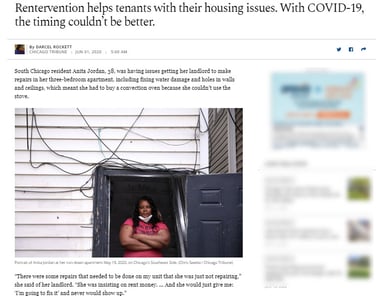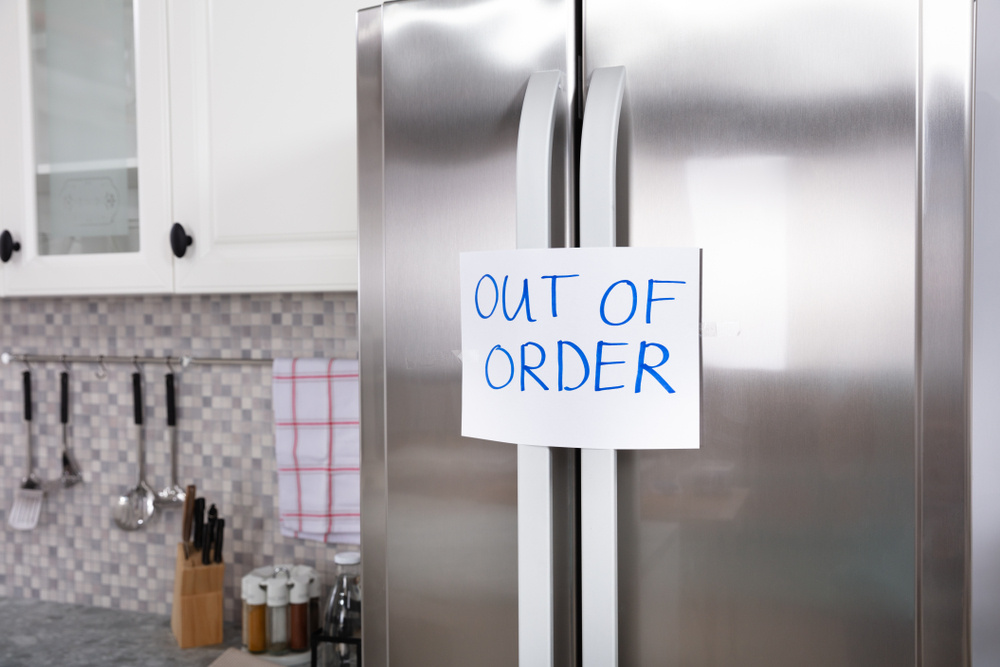Renters haven't traditionally been a hot market for home warranty companies. However, innovative home warranty providers have crafted home warranties for residential rental properties that provide convenience to renters and peace of mind for property managers and owners.
Sign up for our Blog!
First, let's consider why rentals haven't been a core market for home warranties.
Sign up for our Blog!
Rental units historically have been considered high risk by insurers and home warranty companies. Renters come and go. They don't treat appliances and systems like HVAC or water heaters in apartments, condos or duplexes as their own. So, damage and the need to repair products can be, or was thought to be, higher than for properties owned by the actual resident. Additionally, in multi-unit complexes, the risk for underwriters and home warranty companies of covering more than one actual product, but only getting paid for one contract is common and valid. In the rental and hotel space, for instance, it used to be common for a property manager to purchase a few service contracts on window or PTAC air conditioning units and use them to cover many, many actual units as they weren't required to submit serial numbers upon purchase.
Renter also frankly never asked for home warranties. The property manager or superintendent was responsible for fixing broken appliances and systems, albeit on their own timeline and with their own 'opinion' of what constituted fixed.
Essentially, the risk was deemed too high. Renters didn't care.
However, the market has changed. Property managers recognize that more Millennials and even Boomers and GenXers are choosing to rent rather than own for a variety of reasons. But, their expectations of quality and customer service are as high as they are for owned assets.
 How is renters insurance different than home warranty coverage?
How is renters insurance different than home warranty coverage?
Renters insurance is not the same as home warranty coverage. According to Policy Genius, "Renters insurance covers your personal property if it is damaged or stolen, medical and legal bills if you are found liable for damaging someone’s property or injuring them, and temporary living expenses if your rental home is currently uninhabitable".
Home warranty plans pay to fix broken appliances and home systems.
So, though renters insurance does provide coverage to renters, it doesn't protect the renter from the inconvenience associated with broken washers, nor the property owner or manager from the expense of repairing them.
Now, let's look at why renters and property managers might want home warranty coverage for residential rental properties.
Both renters and property managers can benefit from a home warranty or home maintenance contract for rental properties.
Home warranties provider property managers with:
- Protections against repair costs. The home warranty company pays for covered repairs.
- More time. The home warranty company already has a network of credentialed, skilled repair companies eager and waiting to do in-field repairs. The property manager has but to call, text, or go online to request service for units. No more midnight calls for them!
- A better customer experience. Being able to quickly get a trained repair tech out to a renter is gold social currency. Think of the site reviews when the superintendent is the renter community's new favorite person because he or she is quick to solve problems!

For renters, home warranties are really about providing peace of mind that the property manager has an insurance-backed slush fund if you will. When the product in their unit needs to be fixed, the super can quickly get a tech out because the home warranty company already has a network of skilled people, and it's their bank account that's taking the hit, not the property manager.
How often have you seen new reports about renters stiffed by landlords?
How is coverage different for rented than owned?
Coverage for rental properties is similar to residential homes. The biggest differences have to do with the sales provisions and the claim limits.
For multi-unit properties, these home warranties require that all units be covered. This requirement eliminates the risk that a landlord buys one warranty to cover many properties.
They also limit the replacement of products. Whereas a residential home warranty would cover replacement of the product, within the limits of liability, of course, the commercial wouldn't necessarily do that. That limitation is all about risk as well. This limits the exposure to the insurer for potential multiple replacements of products under warranty due to misuse or high use in a rental situation.
Additionally, an added feature enables landlords to tap into the buying strength of the home warranty company, and replace products themselves at a discount when necessary using the home warranty company's supply chain.
So, if you're a property manager or owner, or a frustrated renter, check out fixHomz home warranties. Our innovative solutions provide coverage even for the semi-commercial market!






.jpg)
.jpg)



.jpg)

